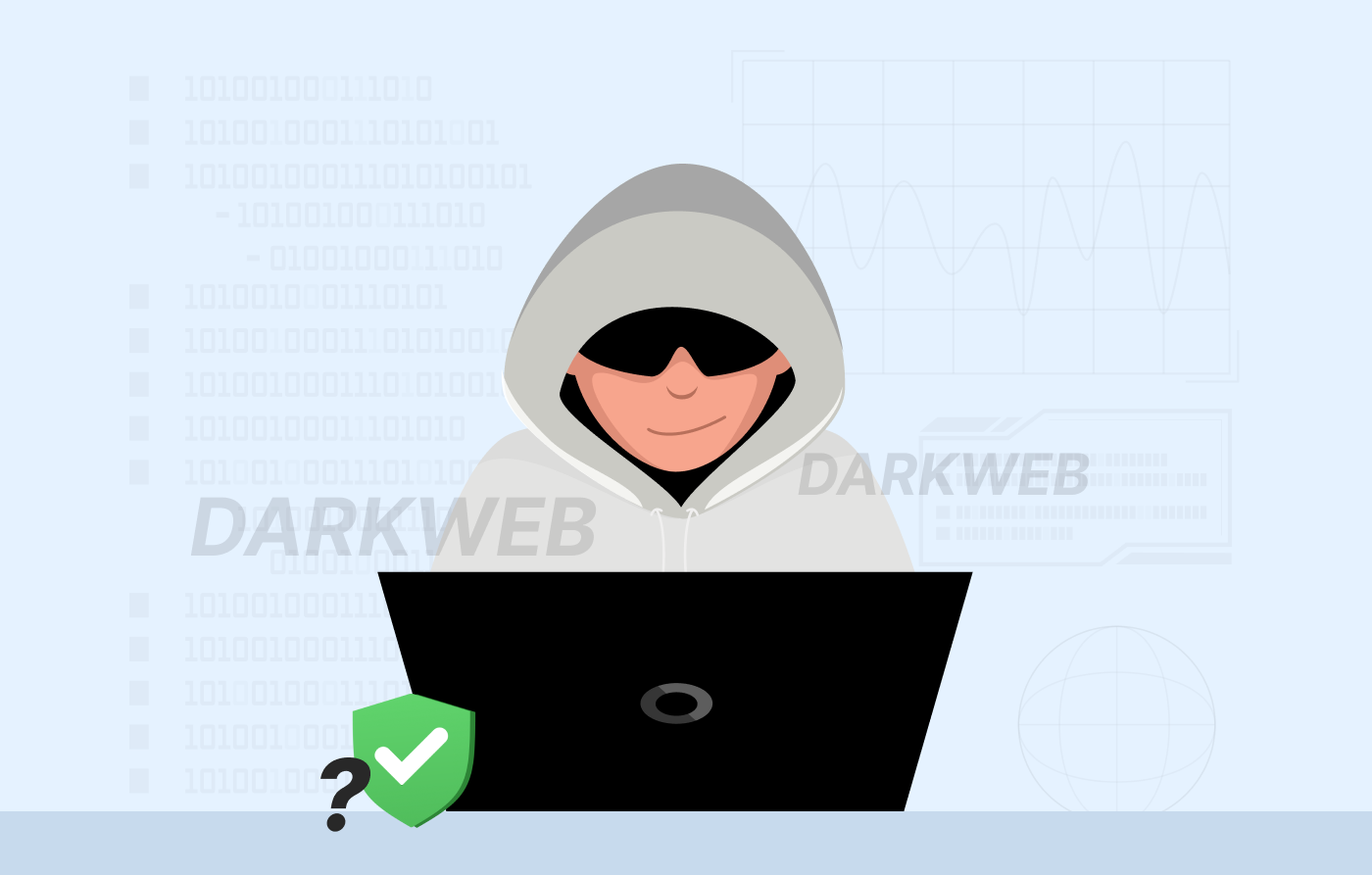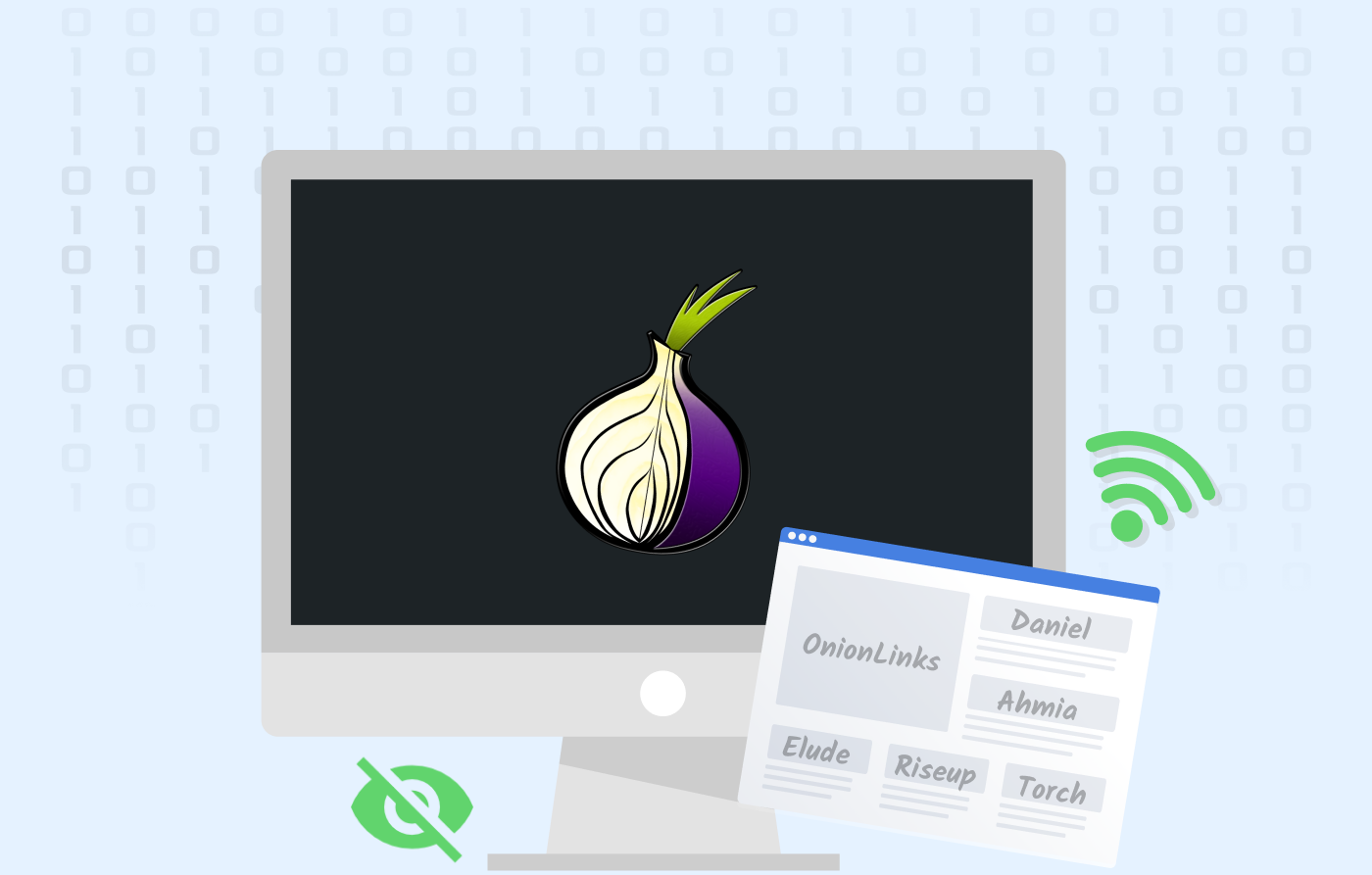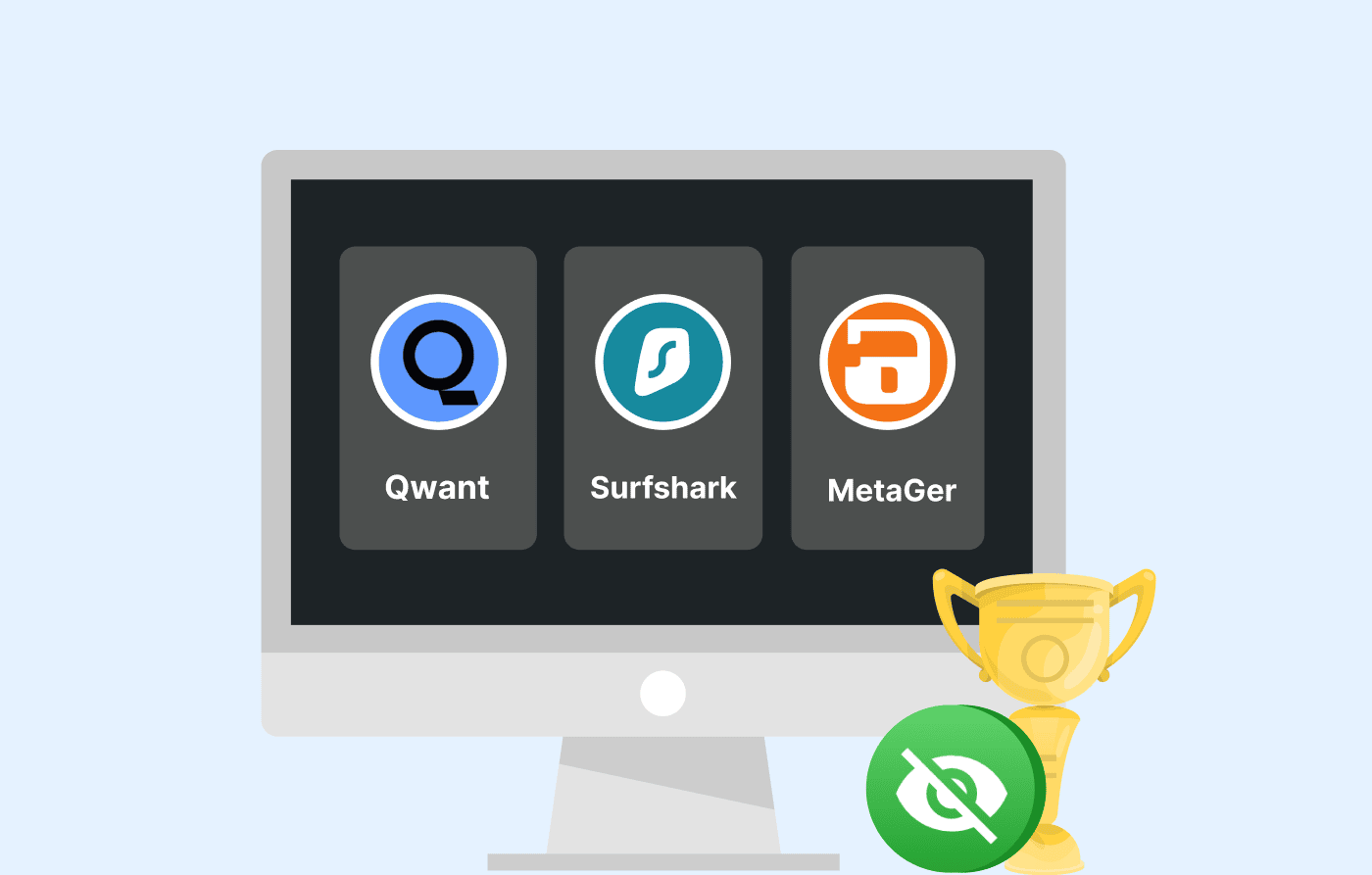Unlike the surface web (the normal, open internet we use every day), you can’t search for .onion sites on Google or open them in Chrome or Safari. You must use the Tor browser to access dark web links. Once inside (if you must enter it), you’ll notice how chaotic the dark web is. Sites vanish, links break, and marketplaces appear or disappear without warning. That is why dark web search engines are essential.
These engines help you navigate a fragmented ecosystem with no central index. Some focus on safety, others on indexing, and a few specialize in areas like privacy resources or darknet markets.
In this guide, we’ll cover the best dark web search engines of 2026, their pros and cons, and what each one offers. Our team tested them to see how many working .onion sites they index, how often they return active pages, and how fast results load under typical Tor conditions (to come up with a list to save you time and hassle).
Disclaimer: Please use this guide for educational and research purposes only as is the case with any article on our website. The dark web is dangerous. Very dangerous. If you decide to explore, your first and most crucial step is to protect yourself with a premium VPN. We recommend NordVPN as a top-tier choice to hide your location and encrypt your traffic. This part of the internet is highly unpredictable, and a quality VPN like NordVPN is non-negotiable for a safer experience.
Top dark web search engines – Quick list
Here are the best darknet search engines that you can use to search. Our specialists repeatedly assessed these services on the dark web to evaluate their speed, safety features, and ability to bypass content censorship and maintain user anonymity, compiling this list.
- OnionFind: Simple dark web search engine that helps users quickly discover active .onion sites across various categories.
- DuckDuckGo: You can search the surface web anonymously with DuckDuckGo’s .onion version, as it is an onion site (based on Tor network).
- Ahmia: Open-source darknet search engine that has a filter for malware. By reputation, it is one of the most trusted by users.
- OnionLinks: Among the indices of onion domains, this is the most recognized, especially with no censorship.
- Recon: Many users consider this one of the best for dark web market data and vendor intelligence tool. It is considered a market niche by other users.
- Onion Wiki: This is a community website on clearnet that provides curtated dark web links.
- Tordex: A new, large dark web engine with no gears that can filter and has no filtering.
- VormWeb: This is also a black web search engine with dark web resources, news, and tools.
- Haystackhttps: During testing, we discovered this hybrid of search, forums, and community chat.
- DarknetSearch: Onion site finds a domain, a fast and simple engine.
- Torch: Advanced search tools for darknet market search engines and is really powerful.
- Tor66: Verified, indexed, and categorized collection of onion sites that work, aiding navigation.
Best dark web search engines today – Detailed list
1. OnionFind
OnionFind is a privacy-focused search engine supported by the Tor Project. Like most search engines, it indexes and crawls the .onion platforms on the dark web and displays results. However, it promotes users’ security and privacy, making it different from the rest. The site doesn’t use IP tracking or cookies, which shows how strictly it follows the GDPR rules and regulations.

Plus, it keeps filtering the content and blocks harmful or illegal material, such as CSAM (child sexual abuse material), so that users can only access the safe resources. Users can access the search engine through both the Tor browser and the regular web through its clearnet link (ahmia.fi).
2. DuckDuckGo
DuckDuckGo is best known on the surface web, but it also offers an onion version that maintains its signature privacy protections. It doesn’t index onion sites, but it lets users search the regular internet while staying inside the Tor network.
This is a unique type of anonymity while researching surface-web topics. Moreover, this engine NEVER logs searches, nor tracks you, nor builds any profile from your activities.
3. Ahmia
Ahmia remains the go-to choice for newcomers thanks to its safety-first approach. The Tor Project backs this search engine; still, it sweeps off harmful or illicit resources and retains just the legitimate onion sites within its index.

As such, you won’t find yourself in any uncensored feed of dangerous links. For this, Ahmia thrives as a dark web search engine one can rely on. What’s more! The interface feels familiar clean, simple, and very similar to mainstream search engines.
4. OnionLinks
OnionLinks (sometimes called “Tor Search”) is a veteran tool on the dark web, famous for its massive library of onion sites. It doesn’t filter anything — you see the dark web exactly as it is.
Because it’s been around for many years, it has accumulated a huge index, making it one of the most dependable places to find obscure, old, or rarely updated services.
Its speed is surprisingly good for such a large, unfiltered engine, but the lack of safeguards means users need to exercise caution.
5. Recon
Recon is solely dedicated to the darknet markets. It is most often utilized by researchers, journalists, and law enforcement teams, who need to analyze vendors, make comparisons of listings, or observe trends over multiple marketplaces.
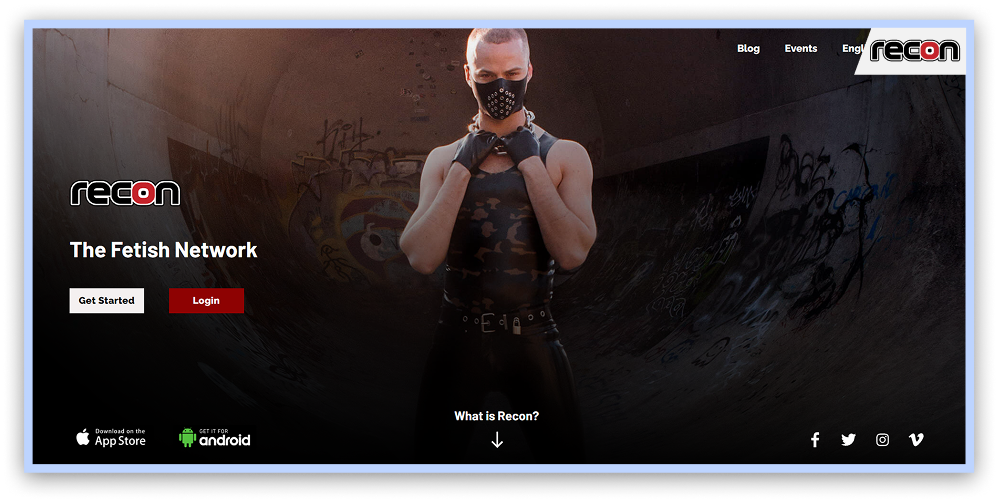
The tool aggregates vendor profiles, reviews, and product data, enabling cross-market analysis that would otherwise take hours to complete. It reveals how the underground economy moves, but it also exposes users to potentially illegal areas, so extreme caution is required.
6. OnionWiki
Onion Wiki is not a search engine in the traditional sense. Instead, it is a community-edited directory website, a living list of onion links, categorized. It acts as a map for newbies. When you find a legit version (trust us, there will be some fake ones), you get a curated list of other onion sites to help you explore without needing to search.
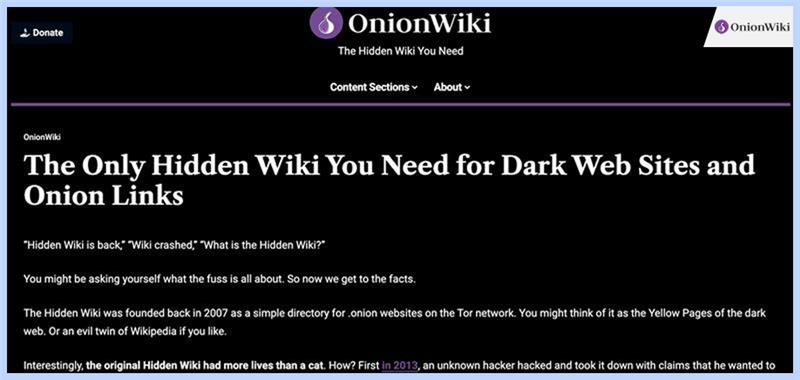
Because anybody can contribute, there is a fair amount of inactive or out-of-date links; but when you find a legit, up-to-date copy, it has value as a very convenient launchpad.
7. TorDex
One of the best private search engines is TorDex. It’s an expanding dark web engine that is continuously evolving to provide the most updated and uncensored dark web search results.
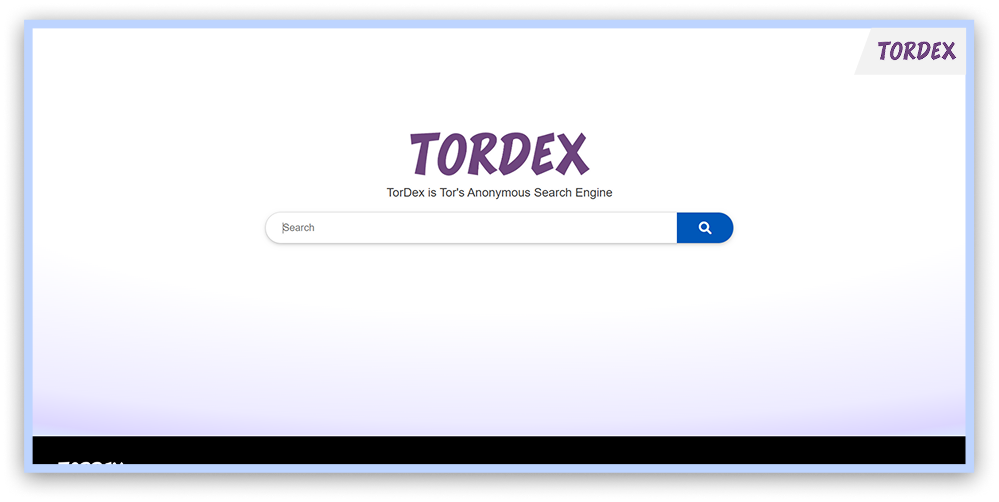
TorDex’s interface is completely user-friendly without sacrificing any of the advanced functionalities that users have come to expect.
Its search provides a completely uncensored dark web search, using advanced software to present users with sites that may be helpful and those that may be dangerous.
8. VormWeb
VormWeb has more onion-related features than most of its competitors. It is effortless to use and has an updated design with additional features and a news section on privacy and security, dark web news, and resources.
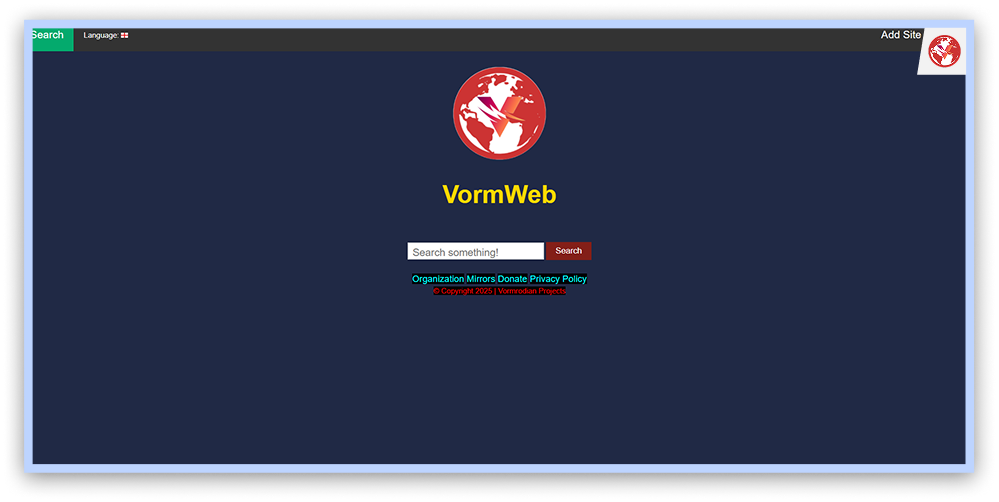
Overall, VormWeb is considered a portal, not just a searching tool. This is an instance of a service that can be both usable and versatile. It has a large pool of services, including numerous markets, directories, and forums, so it’s great for researching and navigating.
9. Haystack
Haystack is an outlier among most dark web search engines as the only one attempting to integrate searching, community, and communication into a single service.
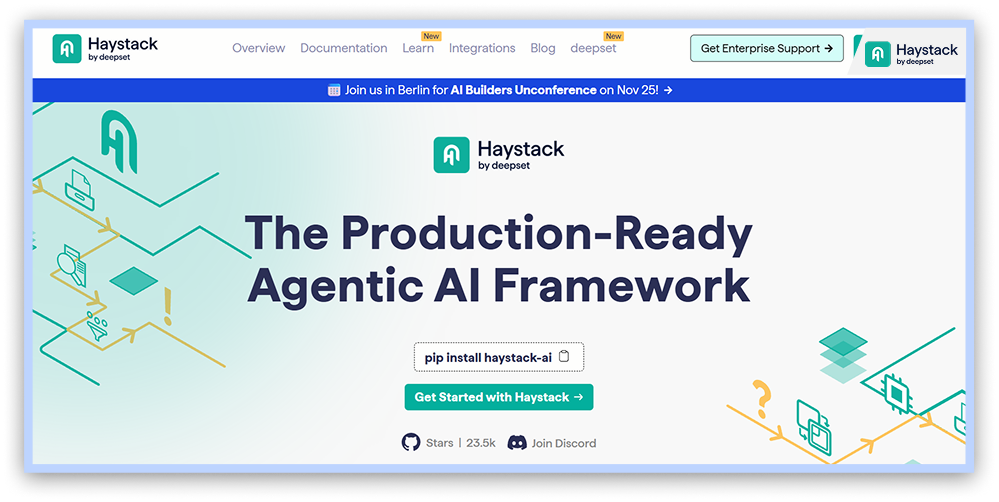
Users are provided with forums and chat rooms, alongside a traditional search engine and a link directory. This composite service makes Haystack an ideal spot to engage with other Tor users.
Finding the answer to specific questions seems most beneficial for new users. The search engine itself is average at best. The true benefit comes from the unique community that surrounds the search engine, something most other engines lack.
10. DarknetSearch
DarknetSearch takes a minimalist approach. It strips away every extra feature and focuses solely on helping users locate onion sites quickly.
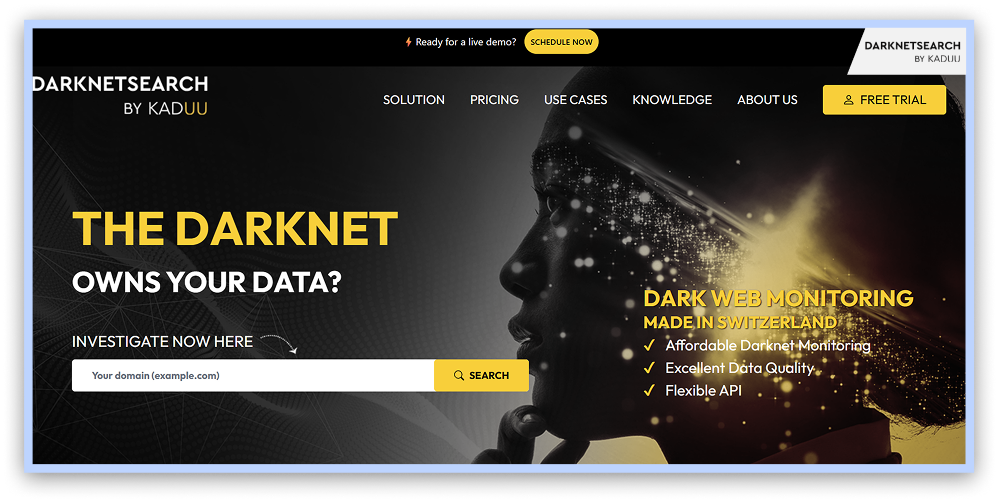
Its interface is very clean, loads instantly, and is extremely easy to use — making it one of the fastest ways to find something specific on the dark web. While the database is not as enormous as TorDex or OnionLinks, DarknetSearch is more reliable and simpler.
11. Torch
Users frequently refer to Torch as the ‘Google of the darknet markets’. It is geared to users seeking marketplace intel: vendor listings, product pages, shipping filters, forum posts, etc.

It has become a large market engine for tracking activity within the darknet economy. Torch has gotten a reputation as a go-to marketplace intelligence search engine.
It provides filters such as country, price, marketplace, vendor, etc. It even includes a bitcoin mixer, allowing for greater privacy on transactions.
12. Tor66
Tor66 combines a regular search engine and a categorized directory of verified onion links. Rather than using random crawlers, Tor66 focuses on sorting actively working sites into neat categories.
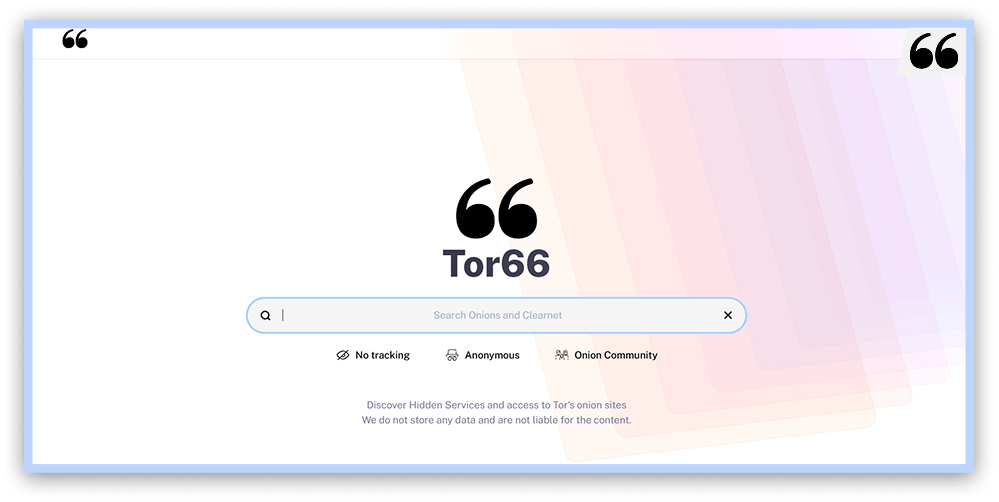
This results in less time wasted clicking on dead links and more time finding legitimate pages. It intentionally does not try to be overly comprehensive, and that works in its favor: it’s more accurate than complete.
This works in the favor of users, researchers, and analysts who enjoy a more systematic approach to the notoriously unstructured world of random links.
How the top-notch dark web search engines compare
| Search engine | Primary focus | Censored? | Index size | User-friendliness |
|---|---|---|---|---|
| OnionFind | Privacy-focused search engine | Yes | Medium | Extremely high |
| DuckDuckGo | Anonymous surface-web search | N/A | N/A | Extremely high |
| Ahmia | Clean & safe browsing | Yes | Medium | Extremely high |
| OnionLinks | Unfiltered large index | No | Extremely large | High |
| Recon | Darknet market intelligence | No | Large (markets) | Medium |
| OnionWiki | Curated directory | Partially | Small | High |
| TorDex | Unfiltered general search | No | Extremely large | High |
| VormWeb | Search + news | No | Medium | Extremely high |
| Haystack | Search + community | No | Small | Medium |
| DarknetSearch | Simple, fast onion search | No | Medium | High |
| Torch | Advanced darknet market search | No | Extremely large | Low (for beginners) |
| Tor66 | Verified categorized directory | Yes | Small–Medium | Very high |
Function of darknet search engines
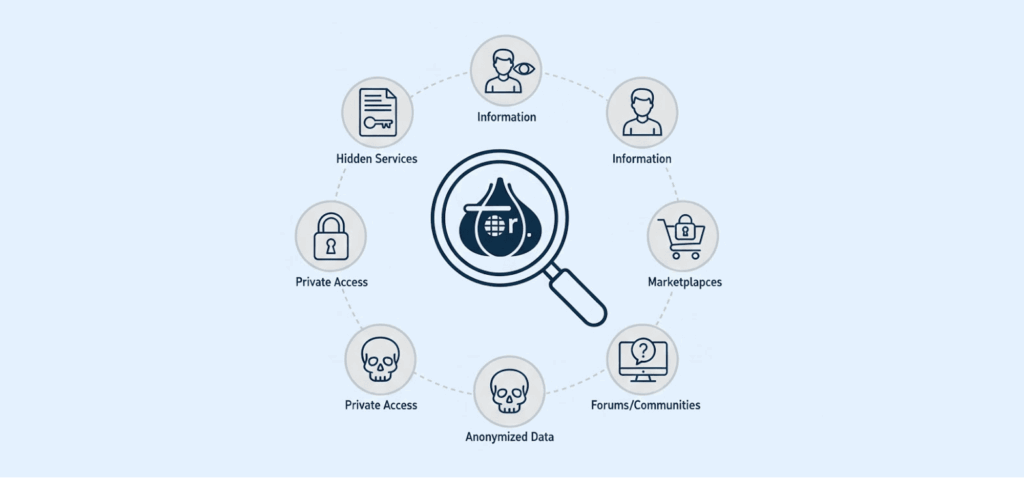
Dark web search engines act as the primary entry point into a realm that is not indexed as part of the broader web. You can imagine trying to find a book in a massive library where none of the books have spine identification or any signs directing you to where you might find a particular topic.
Without search engines, navigating the dark web is much like finding a book in that library.
The aforementioned functions include:
Gateways to access
Different engines are meant for different levels of expertise:
- Safe, beginner-friendly engines: Ahmia, Hidden Wiki, Tor66
- Raw, uncensored engine: OnionLinks, TorDex
- Market engines: Recon, Torch
Privacy protection
Engines such as DuckDuckGo’s .onion extension allow individuals to search for information without being tracked or profiled by advertisers.
Niche specialization
Tools such as Recon and Torch provide niche-focused market intelligence that can be invaluable for reporters and investigators.
Community and education
Haystack and VormWeb exist for:
- Forums
- News
- Blog posts
- Recommendations
All while allowing newcomers to learn safely about cultural norms and etiquette.
Risk reduction
Some engines attempt to filter or verify sites (e.g., Ahmia, Tor66, etc.), to somehow reduce risk.
Dangers related to dark web search engines
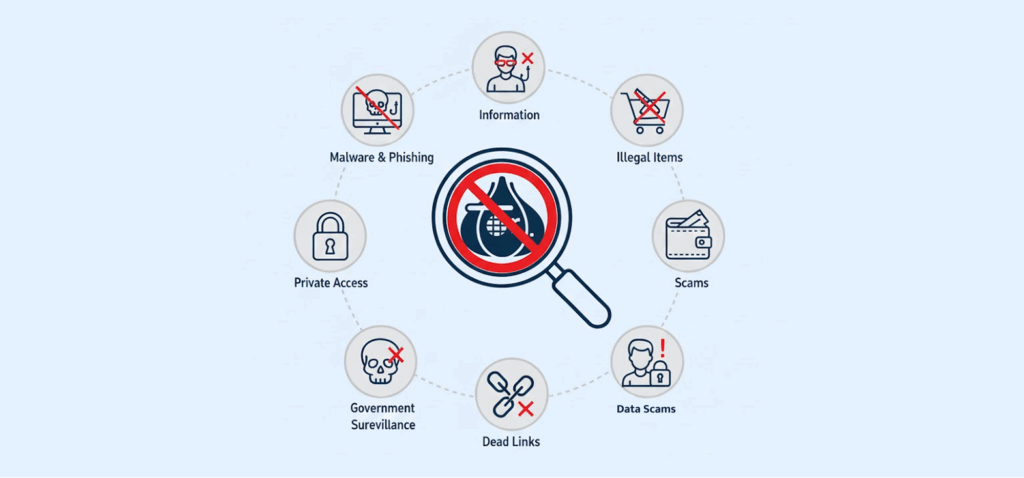
Even when using trustworthy engines, the dark web always poses a risk. Common threats include:
- Malware & phishing: Many sites trick users into downloading.
- Illegal items: Sometimes these engines can introduce disturbing or illegal content.
- Scams: Fake stores, phishing sites, fake vendors.
- Government surveillance: If you search for an illegal market, it can lead to a watchful eye.
- Dead links: Onion sites often disappear quickly, and lead to misnavigation and frustration.
There are certainly many positive ways of using the dark web, but most activities that more people do typically lean towards the illegal ones. If you are among the good users, understanding the risks puts you in a better position to navigate safely.
How to stay safe on the dark web
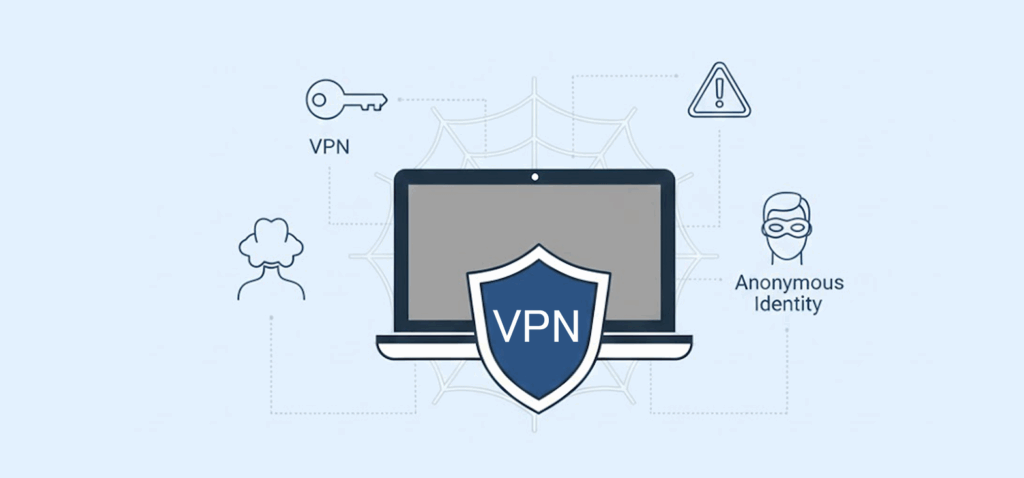
Keeping safe on the dark web should be the number 1 priority, which is probably why many of the people doing that are usually using TOR in conjunction with a trustworthy VPN to boost their levels of privacy on there. If you must use any of the search engines to access the dark web, we recommend you to use NordVPN as it’s a zero-log premium VPN service.
But don’t worry, of course, the approach you can use can depend on threat models. In general, in regard to keeping safe on the dark web, consider keeping these things in mind:
- Don’t divulge personal information.
- Don’t use your real email address or passwords.
- Don’t use cards or banking information — only cryptos are accepted.
- Disable scripts by updating Tor Browser to the “Safest” setting.
- Avoid downloading files unless they’re from a very trusted source.
- Use long and unique passwords for any account.
- Always use a trusted VPN before opening Tor.
These are the basic and essential OpSec practices that every user should follow.
FAQs
No. Regular browsers cannot open .onion sites, and Google and other search engines cannot index .onion sites. You need specialized browsers that have the ability to access that hidden part of the web.
No. Unfiltered search engines expose users to dangerous content. If you are new to this, always use a recommended search engine like Ahmia, DuckDuckGo, or Tor66, and with all the precautionary measures (having a VPN on always with a quality antivirus) in place.
The Hidden Wiki is a directory and not a search engine; it lists links and has no keyword searching.
Absolutely. Many people visit the dark web to access privacy tools, journalism resources that have been blocked from general consumption, and information blocked in their countries. Although you shouldn’t forget that the word “legality” means different things to different countries and individuals.


